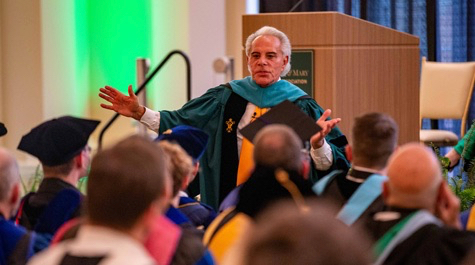Pair of VIMS faculty honored with Plumeri Awards
Professors Eric Hilton and Juliette Smith of the Virginia Institute of Marine Science have been selected as recipients of Plumeri Awards for Faculty Excellence at William & Mary.
Global business executive, philanthropist, and civic leader Joseph J. Plumeri II ’66, D.P.S. ’11 established the awards in 2009 to reward outstanding faculty and enhance the recipients’ teaching, research, and mentorship. Because the pandemic disrupted in-person gatherings during the past two years, recipients of the 2020, 2021 and 2022 Plumeri Awards were jointly honored at a May 13 ceremony in W&M’s Alumni House.
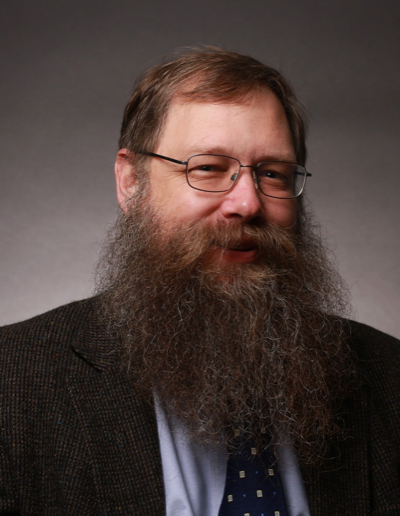 Plumeri told the award recipients he felt overwhelmed with emotion thinking about the difference they had made for William & Mary. “These are called excellence awards, and I love to be around people who excel, people who achieve, people who are rewarded for their hard work,” he said. “I hope you feel the sense of appreciation that I feel for you and what you have accomplished.”
Plumeri told the award recipients he felt overwhelmed with emotion thinking about the difference they had made for William & Mary. “These are called excellence awards, and I love to be around people who excel, people who achieve, people who are rewarded for their hard work,” he said. “I hope you feel the sense of appreciation that I feel for you and what you have accomplished.”
In addition to Plumeri, the event featured remarks by W&M Rector John E. Littel P ’22, President Katherine Rowe, and Provost Peggy Agouris. Three of the 30 award recipients spoke on behalf of their cohorts about how funds from the Plumeri Awards have greatly enhanced their work in a multitude of ways. More than 200 faculty members have benefited from Plumeri’s generosity during the past 14 years. Names and biographies for each recipient can be found online at the Plumeri Awards page.
Recipients of the highly competitive awards are selected based on their accomplishments in the areas of discovery, scholarship, teaching, and athletics. Beginning in 2019, the number of recipients was reduced from 20 to 10 and the award was increased from $10,000 to $20,000, to be used by the faculty member over a 3-year period.
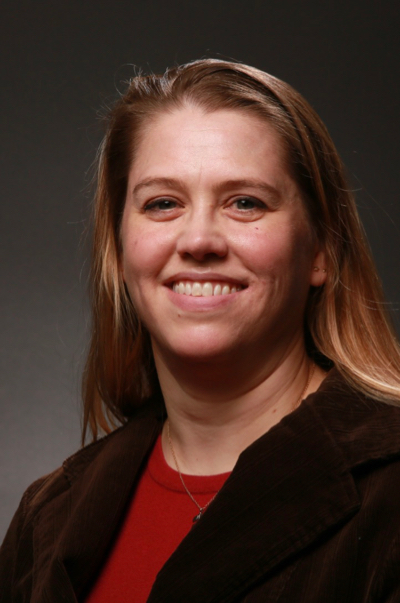 Plumeri selectees at VIMS have used their award to engage students in studies of barrier-island dynamics, the response of marshes to sea-level rise, seagrass monitoring and restoration, international fisheries management, field studies of polar climate change and food-webs, and modeling of storm-surge flooding and sediment dynamics, among many other projects.
Plumeri selectees at VIMS have used their award to engage students in studies of barrier-island dynamics, the response of marshes to sea-level rise, seagrass monitoring and restoration, international fisheries management, field studies of polar climate change and food-webs, and modeling of storm-surge flooding and sediment dynamics, among many other projects.
In opening Friday’s ceremony, Littel said he often hears from alumni about how meaningful interactions with professors shaped their lives. “They have found and shared their purpose and their students and our institution are the better for it.”
Rowe thanked Plumeri for his leadership, generosity, and lifelong commitment to his alma mater. She described Plumeri Award recipients as restless achievers who create new knowledge and transform how teaching happens: “The people who win these awards every year are truly outstanding among a community that’s outstanding.”
Agouris noted the Plumeri Awards celebrate that learning and growth are cultivated both inside and outside the classroom through instruction, research, collaboration, and mentorship—a holistic approach that distinguishes William & Mary. “Each of our recipients has a long list of accomplishments and each one is as impressive as they are unique,” she said.
VIMS Dean and Director Derek Aday says the Plumeri Awards “provide a welcome boost that gives our faculty an opportunity to step outside the box to pursue new and innovative research and educational activities. We greatly appreciate Mr. Plumeri’s generosity in supporting Eric and Juliette, as well as our award winners from previous years.”
Dr. Eric Hilton
Professor of Fisheries Science, Curator of the Nunnally Ichthyology Collection
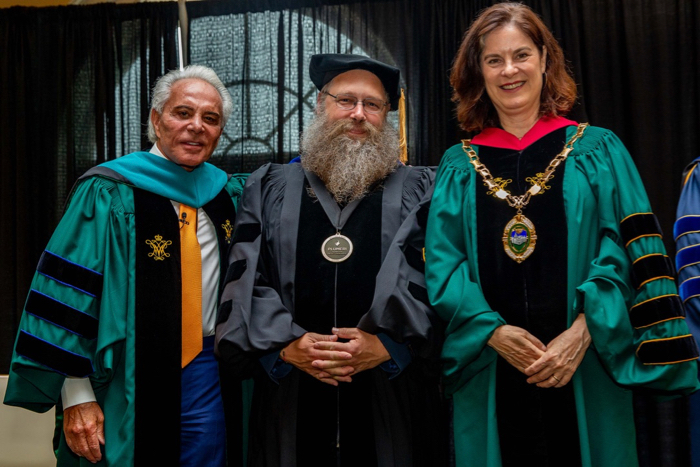 Dr. Eric Hilton maintains an active, vibrant research program that is at the forefront of the biology of fishes. He uses a transdisciplinary approach, drawing on methods and data from comparative anatomy, developmental biology, biogeography, histology, paleontology, genetics, and phylogenetic systematics to investigate the diversity and evolution of fishes worldwide.
Dr. Eric Hilton maintains an active, vibrant research program that is at the forefront of the biology of fishes. He uses a transdisciplinary approach, drawing on methods and data from comparative anatomy, developmental biology, biogeography, histology, paleontology, genetics, and phylogenetic systematics to investigate the diversity and evolution of fishes worldwide.
He is also involved with a wide array of projects on local fishes, including the biology of anadromous fishes in the Chesapeake Bay, such as American shad, river herring, and Atlantic sturgeon; and the ecology of larval fishes of the Bay. This part of his research program supports the management of species, and Hilton serves on technical committees for the Atlantic States Marine Fisheries Commission. He has published nearly 100 peer-reviewed papers, including several book-length monographs, frequently with students as co-authors. He also leads extensive field experiences for students.
Since coming to VIMS in 2007, Hilton has been integral in revitalizing the Nunnally Ichthyology Collection, an internationally recognized resource used by scientists around the world. In addition to a broad portfolio of research grants, he has helped to secure nearly $1 million in support for the collection from the National Science Foundation, as well as additional support from private foundations.
Dr. Juliette Smith
Associate Professor of Marine Science
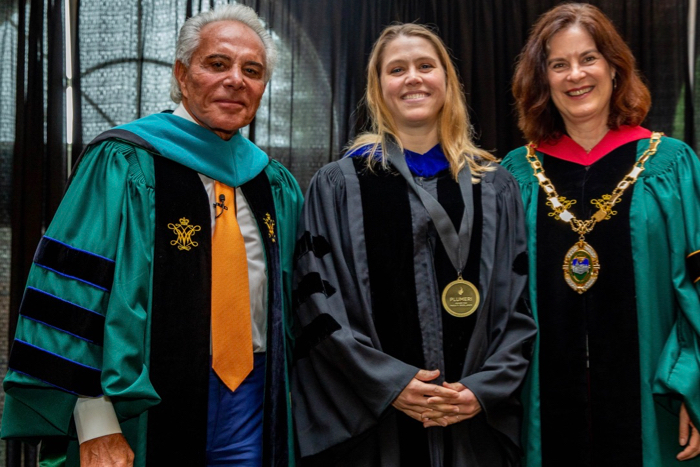 Dr. Juliette Smith and her research group investigate the ecology, chemistry, and ecotoxicology of toxins produced by harmful algal blooms (HABs) in coastal environments. She is comfortable crossing disciplines, borrowing from concepts rooted in oceanography, limnology, biochemistry, analytical chemistry, toxicology, and ecology.
Dr. Juliette Smith and her research group investigate the ecology, chemistry, and ecotoxicology of toxins produced by harmful algal blooms (HABs) in coastal environments. She is comfortable crossing disciplines, borrowing from concepts rooted in oceanography, limnology, biochemistry, analytical chemistry, toxicology, and ecology.
Since joining the VIMS faculty in 2014, her research has largely focused on the Chesapeake Bay. Recent research has focused on local shellfish hatcheries, where she works with colleagues to evaluate HAB toxins and other stressors as possible impediments to aquaculture production. A current goal is to deploy a network of Imaging FlowCytobots across the bay and seaside Eastern Shore to provide real-time HAB data as an early warning system for oyster harvesters, hatcheries, and health officials.
To learn more about other recipients of current and past Plumeri Awards, visit the W&M web pages.


